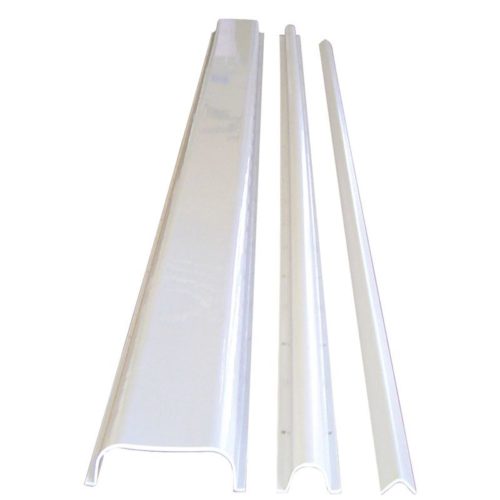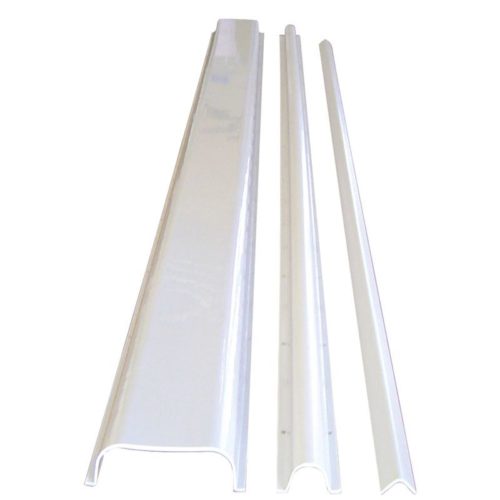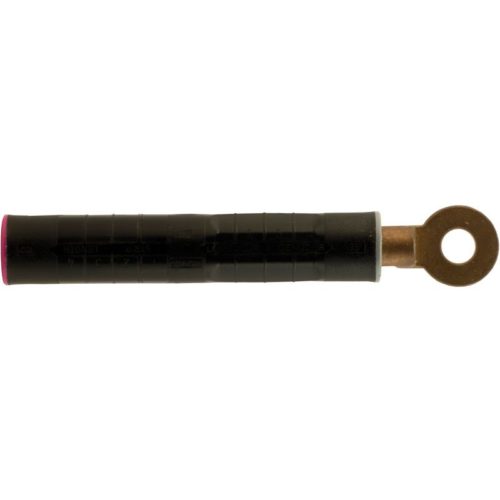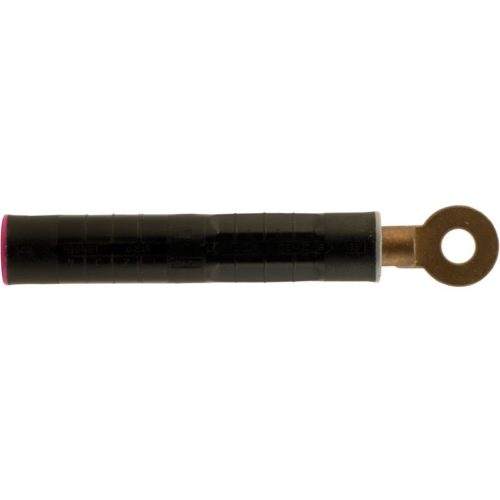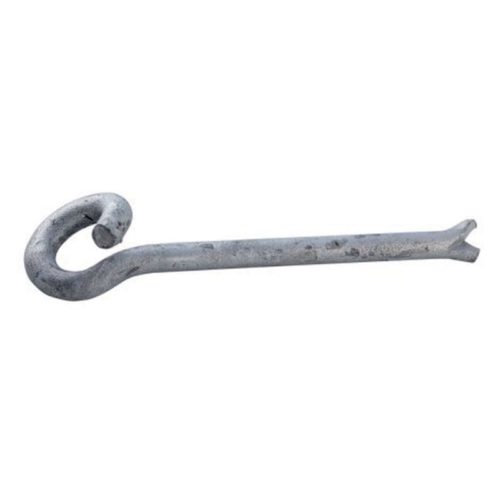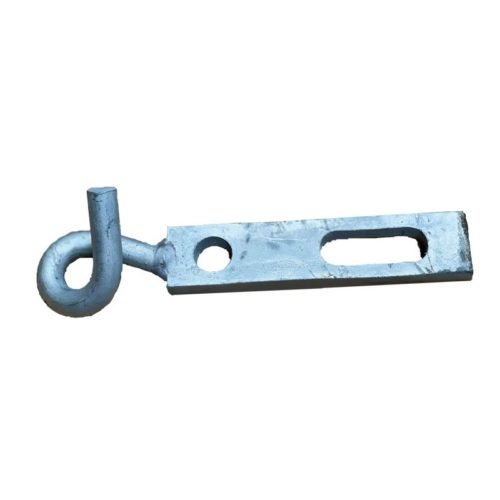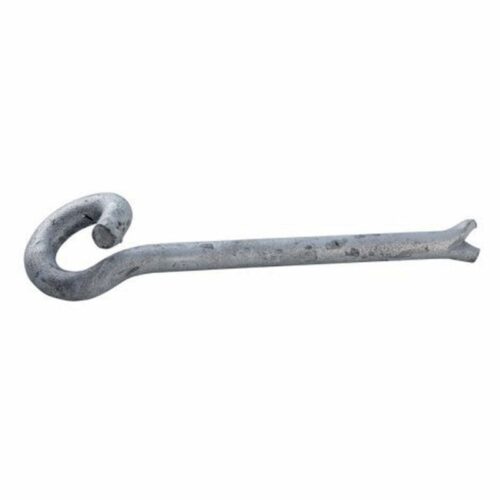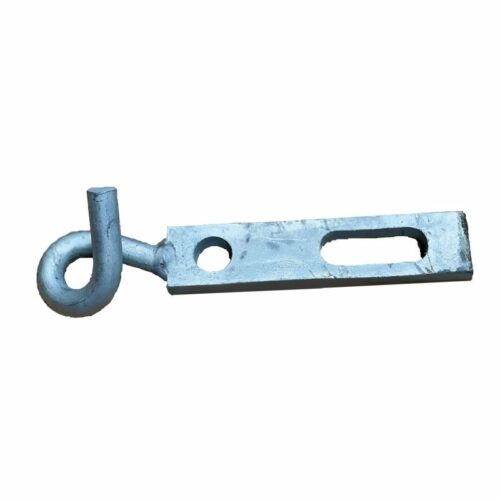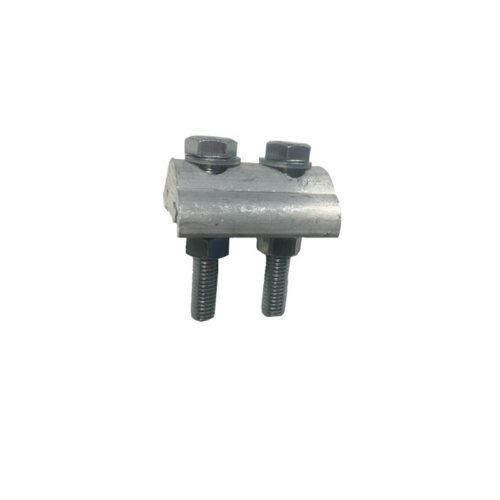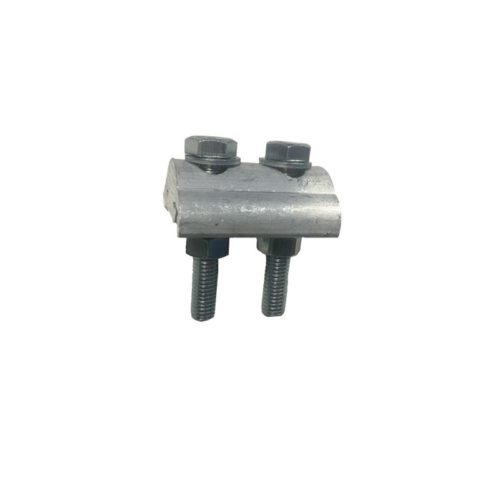-
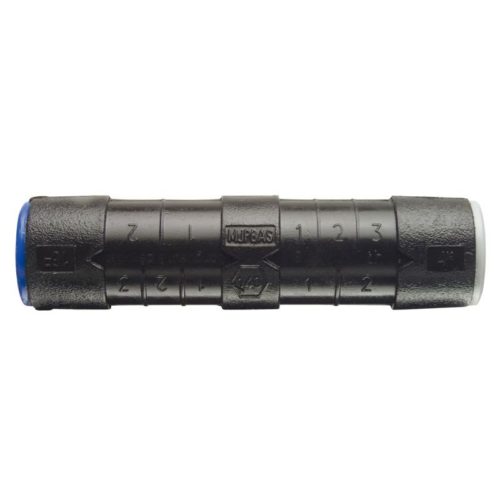
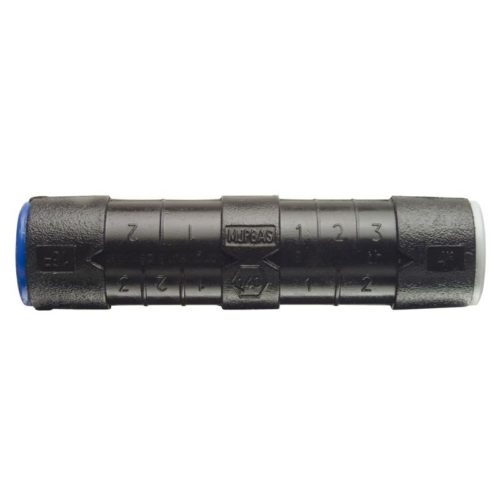 This preinsulated sleeve is designed for the connection of stranded core aerial service cables (aluminium or copper) to aluminium solid core sub-surface service cables. It is also used to connect aluminium solid core service cables to one another. Cable sections up to 25mm² can be connected on the stranded core side and up to 35mm² on the solid core side.
This preinsulated sleeve is designed for the connection of stranded core aerial service cables (aluminium or copper) to aluminium solid core sub-surface service cables. It is also used to connect aluminium solid core service cables to one another. Cable sections up to 25mm² can be connected on the stranded core side and up to 35mm² on the solid core side. -
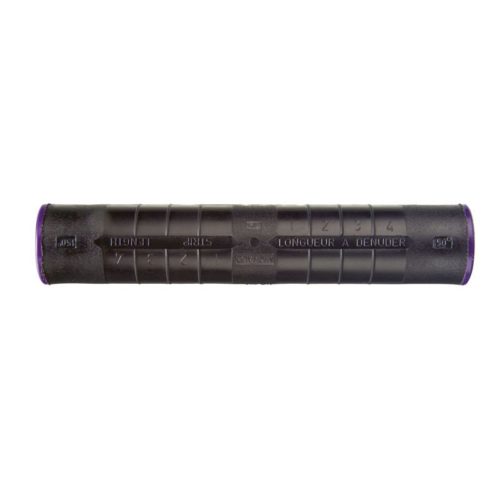
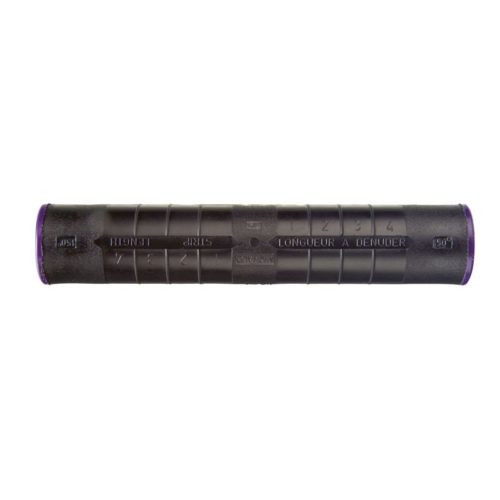 This preinsulated sleeve is designed for the connection of low voltage overhead insulated conductors to other ones. The junction can be established between two conductors of equal or unequal sections. All combinations of sections are possible. The section of the cables ranges from 95mm² to 150mm². The neutral conductor is dimensioned to withstand tensile strength greater than 1 530daN for the 95mm² and greater than 2 500daN for the 150mm² section.
This preinsulated sleeve is designed for the connection of low voltage overhead insulated conductors to other ones. The junction can be established between two conductors of equal or unequal sections. All combinations of sections are possible. The section of the cables ranges from 95mm² to 150mm². The neutral conductor is dimensioned to withstand tensile strength greater than 1 530daN for the 95mm² and greater than 2 500daN for the 150mm² section. -
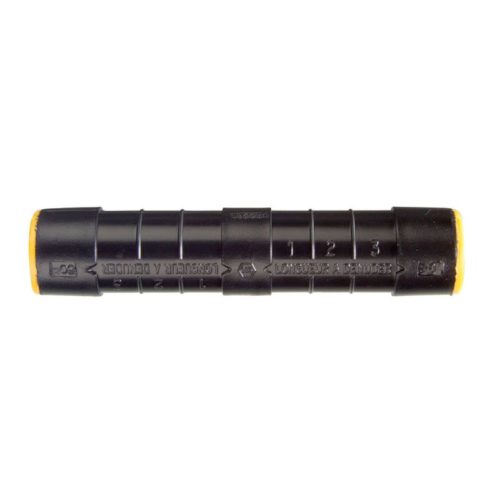
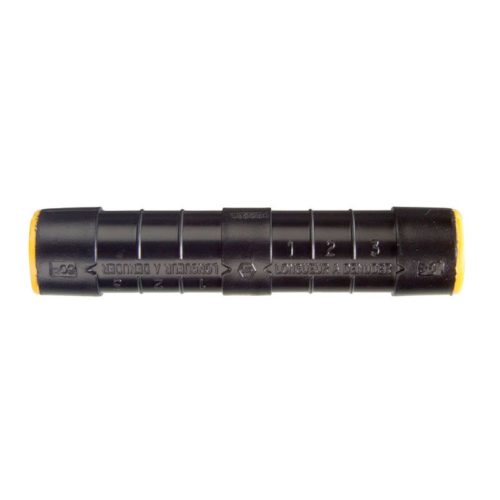 This preinsulated sleeve is designed for the connection of insulated conductors of a low voltage overhead network to other ones. The junction can be established between two conductors of equal or unequal sections. All combinations of sections are possible. The section of the cables ranges from 16mm² to 95mm². The neutral conductor is dimensioned to withstand tensile strength greater than 1 600daN for the 54mm² section and greater than 2 000daN for the 70mm² section.
This preinsulated sleeve is designed for the connection of insulated conductors of a low voltage overhead network to other ones. The junction can be established between two conductors of equal or unequal sections. All combinations of sections are possible. The section of the cables ranges from 16mm² to 95mm². The neutral conductor is dimensioned to withstand tensile strength greater than 1 600daN for the 54mm² section and greater than 2 000daN for the 70mm² section. -
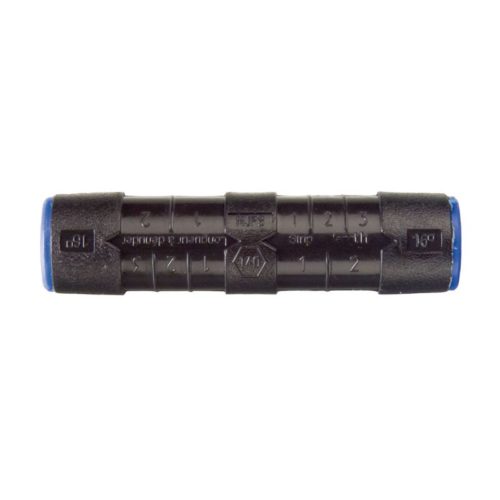
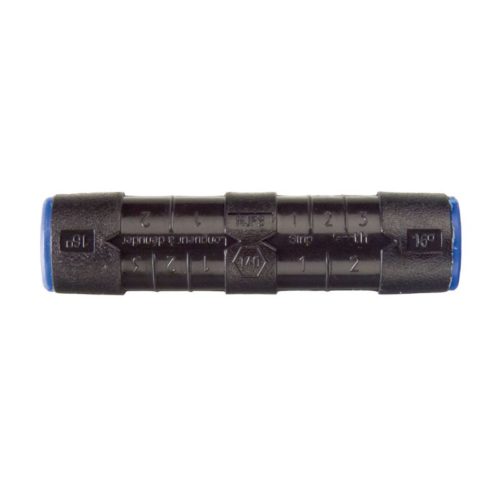 This preinsulated sleeve is designed for the connection of copper or aluminium stranded core overhead insulated conductors with traction or with no mechanical load. It is used for the installation, repair or modification of low voltage service lines. The junction can be established between two conductors of equal or unequal sections. All combinations of sections are possible. The section of the cables ranges goes from 6 up to 35mm².
This preinsulated sleeve is designed for the connection of copper or aluminium stranded core overhead insulated conductors with traction or with no mechanical load. It is used for the installation, repair or modification of low voltage service lines. The junction can be established between two conductors of equal or unequal sections. All combinations of sections are possible. The section of the cables ranges goes from 6 up to 35mm². -
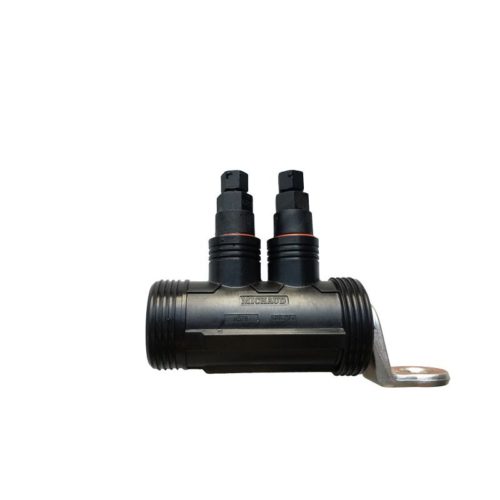
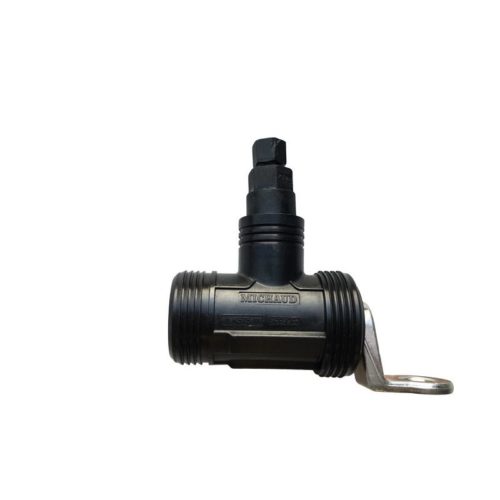 These preinslated lugs with mechanical tightening are used to connect aerial aluminum or copper conductors, solid or stranded round core, to copper equipment terminals. They are to be used without mechanical load. They are made of tinned copper which allows compatibility to copper and aluminium. The connection of the conductor is ensured by one or two shear head screws, for optimal tightening.
These preinslated lugs with mechanical tightening are used to connect aerial aluminum or copper conductors, solid or stranded round core, to copper equipment terminals. They are to be used without mechanical load. They are made of tinned copper which allows compatibility to copper and aluminium. The connection of the conductor is ensured by one or two shear head screws, for optimal tightening. -
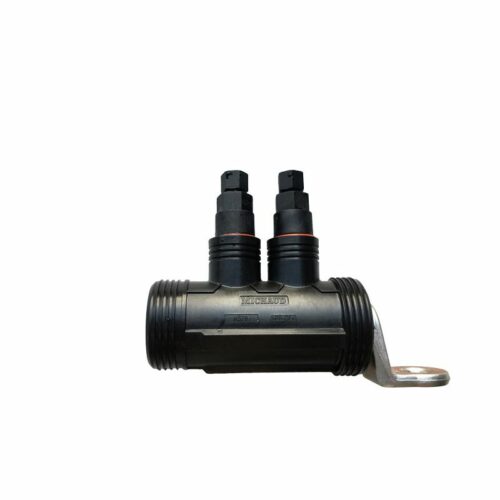
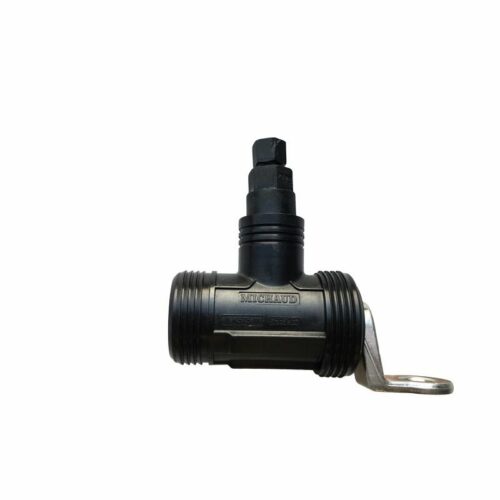 These preinslated lugs with mechanical tightening are used to connect aerial aluminum or copper conductors, solid or stranded round core, to copper equipment terminals. They are to be used without mechanical load. They are made of tinned copper which allows compatibility to copper and aluminium. The connection of the conductor is ensured by one or two shear head screws, for optimal tightening.
These preinslated lugs with mechanical tightening are used to connect aerial aluminum or copper conductors, solid or stranded round core, to copper equipment terminals. They are to be used without mechanical load. They are made of tinned copper which allows compatibility to copper and aluminium. The connection of the conductor is ensured by one or two shear head screws, for optimal tightening. -
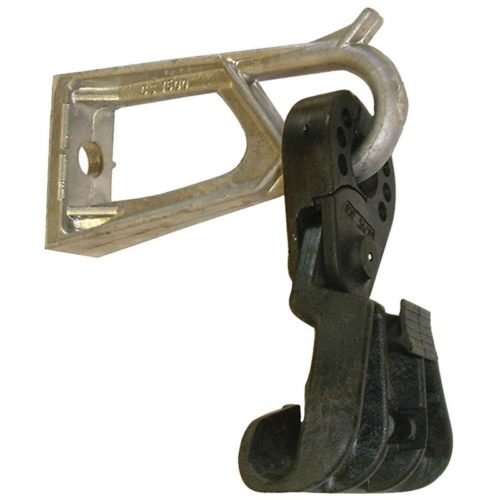
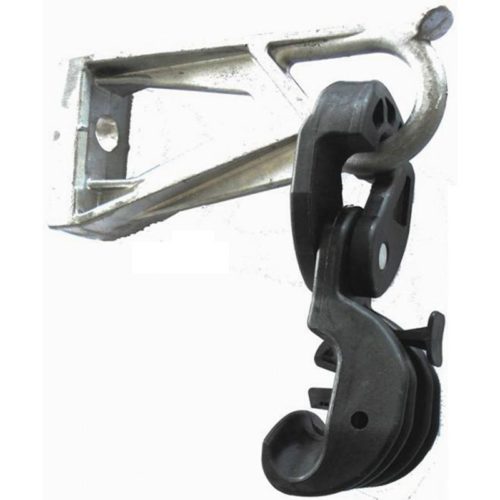 The anchoring assembly is designed for the 1500daN single or double anchoring of A.B.C. (Aerial Bundled Conductors) with insulated neutral messenger of 54.6 and 70mm² sections. It comprises a bracket supporting one or two anchoring clamps. The suspension assembly is designed for suspending the low voltage A.B.C. (Aerial Bundled Conductors) with insulated neutral messenger of 50 - 95mm² sections for code K277 and 50 - 70mm² sections for code K283. It comprises a movable link system, a suspension clamp and a bracket. 2 standard suspension assemblies are available: - ES 1500, - ESF 715 equipped with a fuse element (breaking 715 ± 65daN). The fuse element can be factory calibrated between 500 and 1 200daN. It is designed to break when an abnormal effort is applied on the A.B.C. The cable drops without causing the pole to break (i.e.: tree falling on to a power line). The cable can be quickly put back in position thanks to the installation of a new clamp on the bracket still in place.
The anchoring assembly is designed for the 1500daN single or double anchoring of A.B.C. (Aerial Bundled Conductors) with insulated neutral messenger of 54.6 and 70mm² sections. It comprises a bracket supporting one or two anchoring clamps. The suspension assembly is designed for suspending the low voltage A.B.C. (Aerial Bundled Conductors) with insulated neutral messenger of 50 - 95mm² sections for code K277 and 50 - 70mm² sections for code K283. It comprises a movable link system, a suspension clamp and a bracket. 2 standard suspension assemblies are available: - ES 1500, - ESF 715 equipped with a fuse element (breaking 715 ± 65daN). The fuse element can be factory calibrated between 500 and 1 200daN. It is designed to break when an abnormal effort is applied on the A.B.C. The cable drops without causing the pole to break (i.e.: tree falling on to a power line). The cable can be quickly put back in position thanks to the installation of a new clamp on the bracket still in place.
